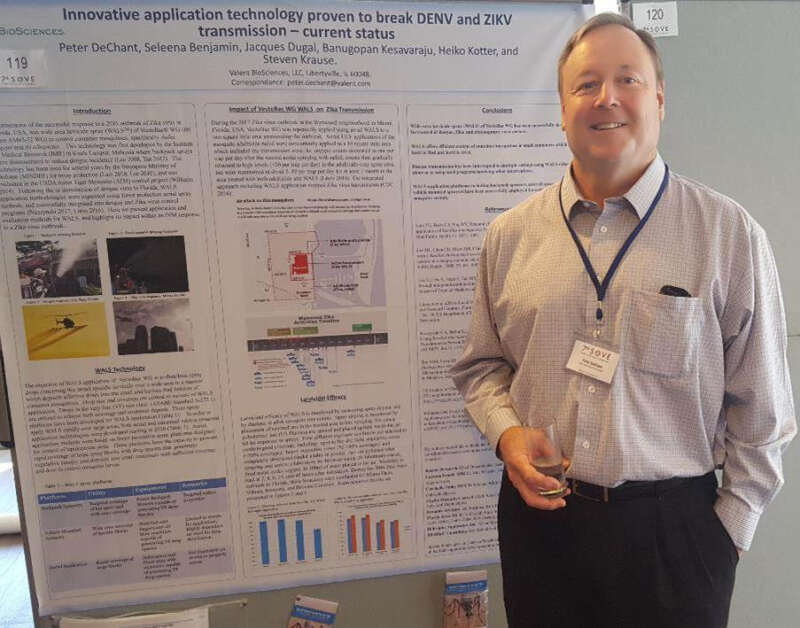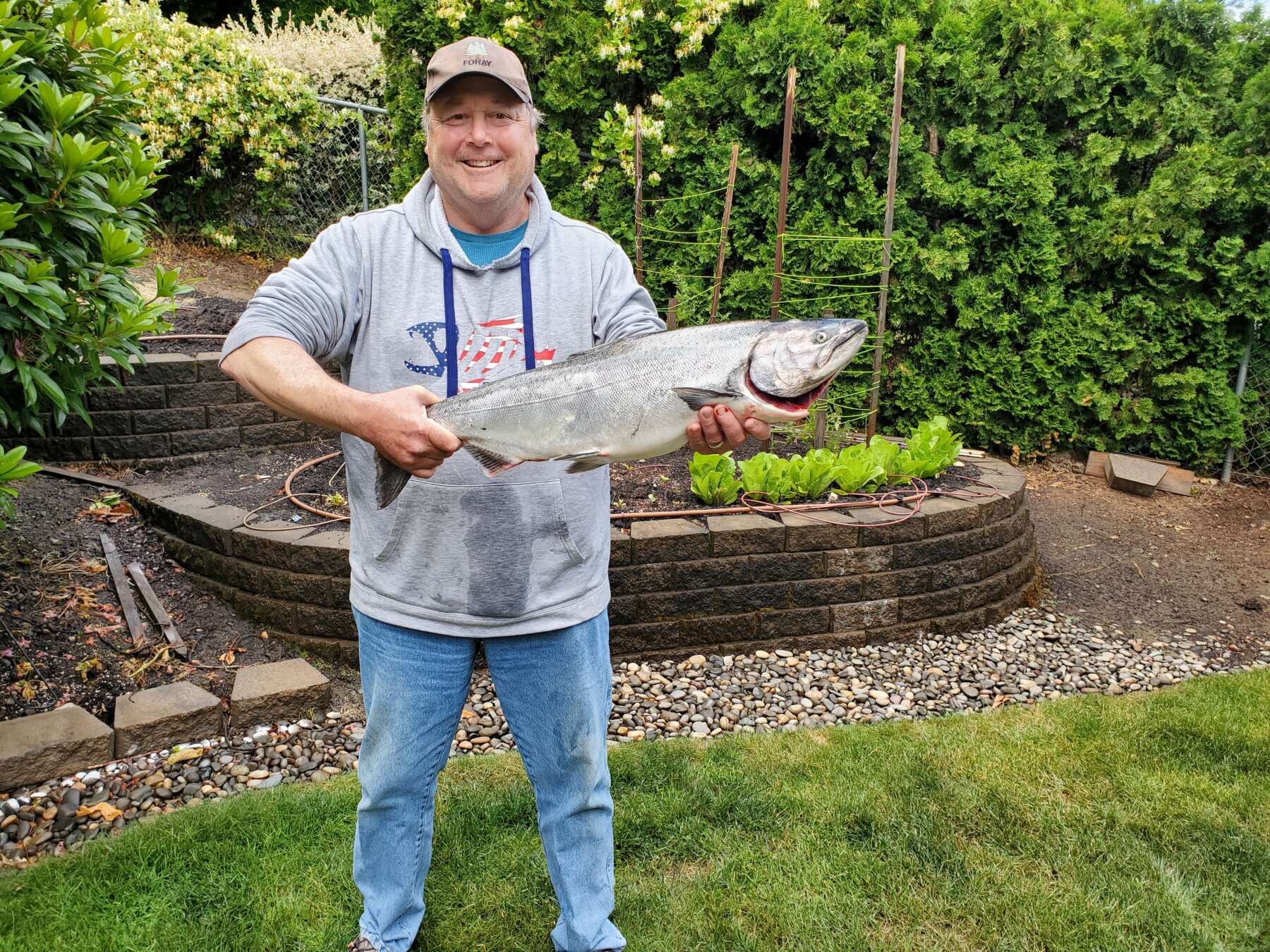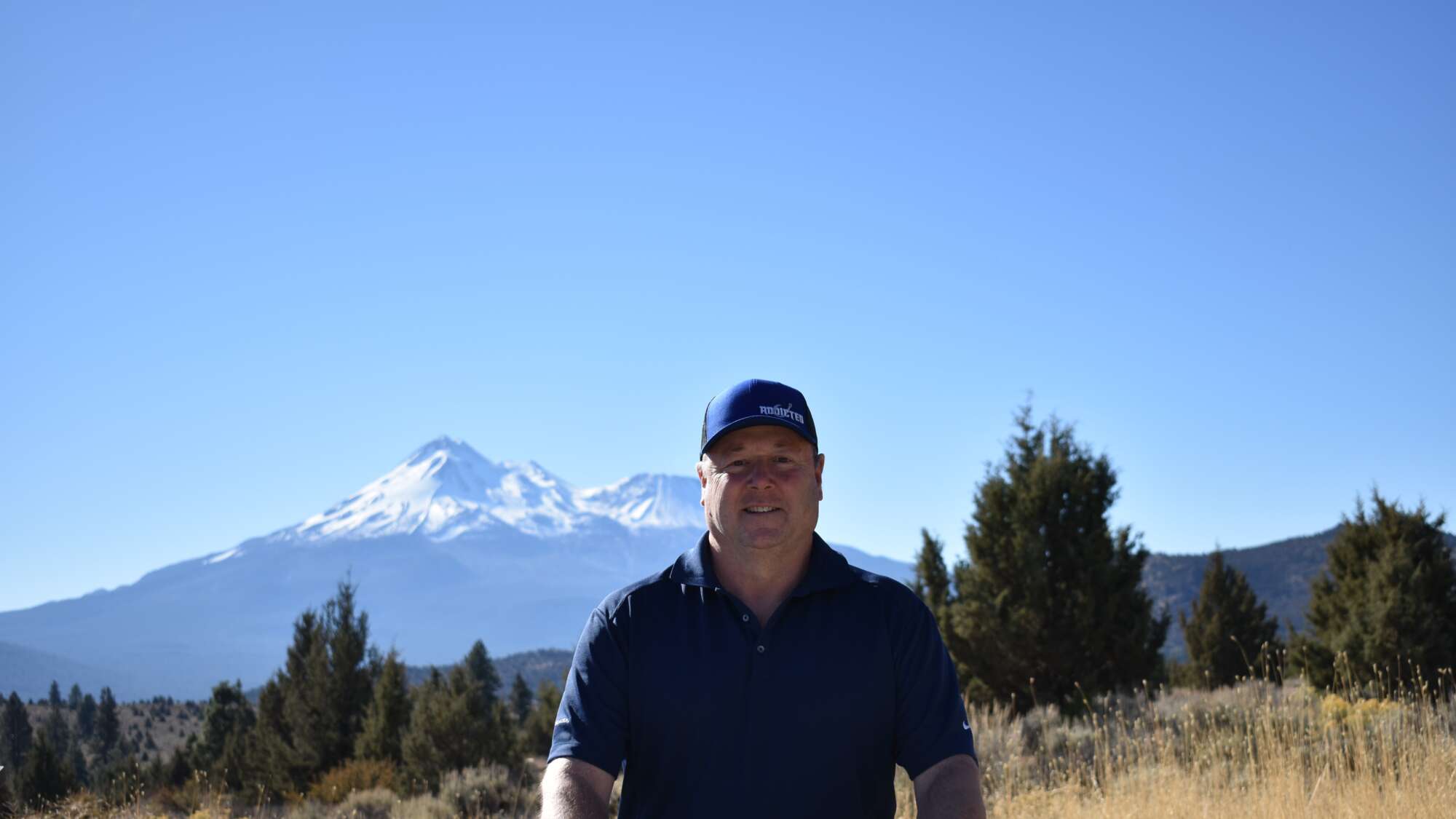The story of Peter DeChant, a veteran in the mosquito and vector control profession whose journey spans over four decades, is one of dedication, innovation, and relentless commitment to combating mosquito-borne diseases.
Peter’s journey began in 1978 when he became a field technician with Multnomah County Vector Control in Portland, Oregon. Little did he know then that this would mark the start of a lifelong crusade against one of the deadliest creatures on the planet.

By 1983, Peter’s skills and passion for his work led him to the role of Chief Sanitarian, where he led the program for 14 years. It was during this time that he honed his expertise and laid the foundation for his future endeavors.
Peter began a new phase of his career when he joined Abbott Laboratories Public Health Business Unit, now known as Valent BioSciences LLC (VBC). There, he immersed himself in the technical and commercial development of biorational mosquito control products – achieving two patents for mosquito control product platforms as well as the development and enhancement of multiple application platforms for biorational mosquito larvicide application.
Moreover, Peter’s impact extends beyond the confines of the laboratory. He has been at the forefront of global responses to mosquito-borne disease outbreaks, has lent his expertise to support research demonstrating the reduction of mosquito-borne disease transmission through Integrated Vector Management (IVM), and played a crucial role in shaping global policy development for vector control responses.
Peter DeChant’s unwavering dedication to mosquito and vector control has undoubtedly saved countless lives and paved the way for a brighter, healthier future for generations to come.
We are honored that Peter took time to answer some questions about his career and personal life.

The Interview
Q: Your career spans over four decades in vector control. What initially drew you to work in this field?
De Chant: “Now that’s a funny story. I was studying Public Health at Portland State University with a focus on Environmental Health. My Environmental Health professor started class one day with a speech about the wonders of DDT. “Why is everyone complaining about DDT,” he said. “It’s a wonderful chemical that has saved lives and protected our food supplies and it’s nearly non-toxic to people.” Being a young idealist, I couldn’t let that pass. I challenged him about the compound’s persistence and bioaccumulation in the food chain and then laid it on thick about impacts on Eagle and Osprey populations. He didn’t take the challenge. With a smirk on his face, he went into the day’s lecture which was on a completely different subject. I thought it was odd but figured that he stood corrected. At the end of class, he singled me out and asked me to come talk with him in his office. Thinking I was in serious trouble, I did as he asked. In his office, the first thing he asked me was “Would you like a summer job?” Needing income, I said sure. He told me that the county vector control office was hiring and sent me off to meet the manager. They took me on as a “Mosquito Checker.” The duties included sampling aquatic habitats for mosquito larvae and implementing larval control. This work put me face-to-face with nature in ways I had not experienced. I learned aquatic Entomology through hard knocks and was trusted to implement creative solutions for control. I fell in love with the work and never looked back.”
Q: You have made notable contributions in your various roles. Could you share with us a pivotal moment or project that significantly influenced your approach to vector control?
DeChant: “In the early 1980’s, the tools we had for mosquito control were less than ideal. We mainly had organophosphates (OP) and oils which were used both against larvae and adult mosquitoes. I grew frustrated with the impacts I noticed on aquatic habitats and non-target insects if not applied with great care. I even suffered a mild case of OP poisoning when some fenthion soaked my clothing and I wasn’t able to change and wash quickly. To me, there had to be a better way. I started looking for solutions and with information from the state Entomologist, I found one of the early primary powder formulations of Bti. It worked, but was highly impractical. Then one day in 1982, a guy named H.B. Munns (Munzy) showed up at my office with a bag of VectoBac G. He asked me to try it. It worked really well on the larvae of floodwater mosquitoes and seemed to have no impact on the aquatic environment. It was also easy to apply. I was sold and so were the field technicians. We built a program around it and shared our success with others in the region.”
Q: You’ve held leadership positions in both governmental and private sector organizations. How do you navigate the intersection between public health goals and commercial interests in the development of vector control products?
DeChant: “In designing and developing products and solutions for public health vector control, the first step is always to identify real problems facing the mission of the customers. The exciting part is brainstorming and testing proposed solutions. I was blessed to be part of a talented and passionate team that was laser focused on problem solving. Whether the objective was improving efficacy, preventing resistance, improving application efficiency or utility for the customer, the iterative process was similar. You have to get lots of ideas on the table, consider how they will work both technically and practically, build the prototypes, and then test them with statistically sound science. It’s not easy, but when the team delivers a solution, it’s really satisfying.”
Q: Your work has sent you all over the world. From both a personal and professional perspective – what has been your favorite destination and why?
DeChant: “Well, home has always been my favorite destination, but if were talking about other places, I would have to say Italy. I spent a lot of time there, developed friendships, learned the language (quasi), and came to love the culture, wine, food and the “modo Italiano”. The small, non-touristic towns in rural areas have a unique appeal to me. The subtle but amazing architecture and art found in these out of the way places combined with the genuine character of the people makes for a very pleasant experience. I feel almost at home when I’m there.”
Q: As the CEO of DeChant Vector Solutions LLC, you provide consulting and market evaluations related to mosquito control. How do you see the field evolving in the face of emerging vector-borne diseases and environmental changes?
DeChant: “I see the demand for public health vector control increasing along with a need for new solutions and better utilization of existing solutions. Increased human mobility, urbanization, changing climate, and water supply demands are driving the spread of vector borne disease. The vectors and their behaviors are changing. Insecticide resistance to multiple modes of action is on the rise. We face complacency in many societies and governments about the problem. This comes both in the form of an unwillingness to change strategies despite lagging success, and the high hopes that some new game-changing technology will fix everything. There are no magic bullets. Real answers will come from the hard work of skilled vector control technicians involved in active mosquito control within their communities. As they fine tune practical tried-and-true solutions, and work with the research community and industry to implement new technologies, progress will come. Let’s hope that governments and funding organizations will give them support.”
Q: What do you like to do when you aren’t thinking about mosquitoes?
DeChant: “When I get the chance, I always want to see my children and grandchildren. I hope to ski with the grandkids soon. Lately, I have been focused on gardening and fishing. I am building a greenhouse and preparing for another gardening and salmon season. I am striving to complete 50% of my grocery shopping on the river and in my back yard. I keep threatening to write a book about salmon, but it is coming along very slowly.”
Q: Finally, If I was to write a book about your life, what would the title be?
DeChant: “The Lucky Mzungu”
*All images are courtesy of Peter DeChant unless otherwise stated.
Disclaimer: The views and opinions expressed in this interview are those of the interviewees and do not necessarily reflect the views or positions of Public Health Landscape or Valent BioSciences, LLC.
